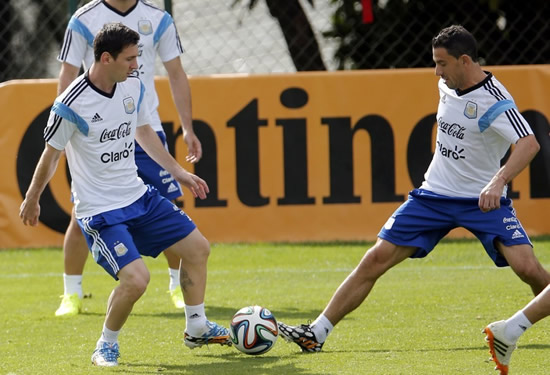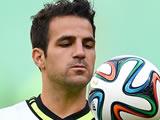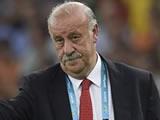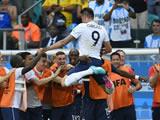Can Messi thrive with Argentina?
Saturday, June 21, 2014 by ESPN
SAO PAULO -- Something about Lionel Messi is shifting.
It used to be that he excelled with Barcelona but was unable to perform as well with Argentina. Then the tables turned for Barcelona, while Argentina did well and Messi shone -- as illustrated by his wonder goal at the Maracana last Sunday against Bosnia-Herzegovina. It used to be that he was shy, low-profile and rarely said much; now he's held two lengthy, detailed news conferences this week alone, volunteering to share his views.
Messi doesn't seem Messi. He's always been a bit of an unknown quantity, so to speak of him acting out of character or doing a U-turn isn't easy. But as has been apparent for some time he's cast the shadow of a troubled, or at least distracted, superstar.
In 2006, he arrived at the World Cup hailed as the brightest young talent in the game, and in 2010, he was the world's best. Over the course of two tournaments, he managed to score only one goal. This time round, he lands at the tournament having lost the Ballon d'Or to Cristiano Ronaldo, and following, by his own lofty standards, a less than glorious season with Barcelona.
"It feels like when one of those A+ students who always do really well score a mildly lower grade, like an A or an A-," wrote Eduardo Saccheri, a history teacher/football writer and Oscar-winner with his script for "Secret in Their Eyes." It was in response to the general unease about Messi's fitness and form, which dominated the Argentine media before the World Cup.
And it's true that for all the talk of Barcelona's demise, Messi's "bad" form saw him score 41 goals in 44 games in 2013-14. But when he's not 100 percent comfortable on the pitch, it shows. Whether consciously or subconsciously, issues mean he is not at the top of his game, and it showed in the first half against Bosnia, whose formation of five at the back and a single striker left Messi strangled in attack.
Argentine journalist Roberto Martinez, an old family friend who knows him well, said: "Messi is a player who needs the team, who cannot be emotionally independent from the group, and is therefore very demanding of his teammates, both in Barcelona and with the national squad.
"He is not Maradona, who used to charge on and could take the weight of the whole squad on his shoulders. Messi needs to be connected to the team, to work as part of a bigger whole."
Martinez believes it is Barcelona who are in turmoil, rather than Messi: "Barcelona needs a re-start, many players are leaving, it's a logical lack of ambition situation, having won everything -- [former manager Pep] Guardiola himself said 'If I feel I can no longer motivate my players, it's time to leave.'"
The departure of many figureheads in the Barca squad (Victor Valdes, Carles Puyol, Xavi are all likely to leave, and Cesc Fabregas has already left) coincides with Spain's early exit. The reigning champions, who during 2010 were regarded as the international version of Barcelona, have faded away.
Messi, by contrast, appears to be getting back into top gear. A half-time change in system against Bosnia delivered the Messi everyone wants to see. It's the way he wants to play and the rest of the squad, plus even the Football Association president, have supported this. The Argentine media -- perched with binoculars on the hills surrounding the training base -- have reassured Argentines that training is being conducted "the way Messi likes" -- what works for Messi works for us all being the key.
If the fuel from which Maradona derived his stamina was a vengeful and combative sense of himself alone "against the world," Messi thrives in being part of a perfect system: the main part, the central part, the key part maybe, but he needs the system. As he approaches his 27th birthday, that first goal may be just the beginning in Brazil.

Legends pay tribute to Gerrard & Lahm
International retirements follow Wo...
- Year
- Winner
- Runner-up
- Third place






